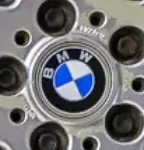How does a car key work?
A car key is an essential device for starting and securing a vehicle. As technology has evolved, car key operation has become considerably more sophisticated.
Traditional mechanical keys operate by a simple cut-and-groove mechanism. When the key is inserted into the lock, its notches match the pins inside the cylinder. When all the pins are aligned, the key can turn and unlock the lock, enabling the vehicle to be started.
Transponder car keys have revolutionized automotive security. Introduced in the 1990s, these keys incorporate an electronic chip (transponder) in the body of the key.
When inserted in the ignition, a radio signal is sent to the transponder. If the signal is recognized, the vehicle starts. If not, the immobilizer prevents the engine from starting. This technology considerably reduces the risk of vehicle theft.
The transponder chip contains a unique code which the vehicle's on-board computer must recognize. When the key is inserted, the ignition emits a low-frequency radio signal which activates the chip. The chip then sends a return code to the vehicle. If the code matches that programmed into the vehicle's ECU (electronic control unit), the engine starts.
Electronic keys, or keyless entry systems, enable the vehicle to be unlocked and started without removing the key from the pocket. These systems use radio communication between the key and the vehicle.
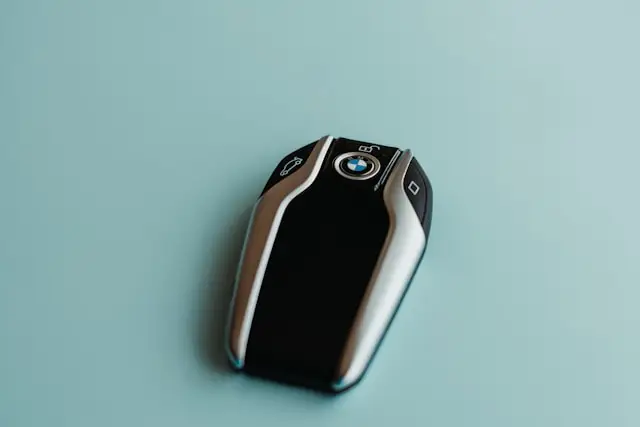
The different types of car keys
There are many different types of car key, each with its own characteristics and levels of technological sophistication. Here's a detailed analysis of the different types of car key available on the market.
1. Traditional mechanical key
Traditional mechanical keys are the oldest and simplest. They consist of a metal blade with notches and grooves specific to the vehicle lock. These keys are becoming less and less common with the advent of modern security technologies.
2. Transponder Car Key
Transponder keys contain a microchip that communicates with the vehicle's immobilizer. Introduced to combat theft, they are now standard on most modern cars.
3. Electronic Car Key (Keyless Entry)
Electronic keys provide keyless access to the vehicle, and include buttons for locking/unlocking doors and opening the trunk. These keys operate remotely, using radio signals to communicate with the vehicle.
Examples: Toyota Prius and Honda Accord keys.
4. Smart Key
Smart keys offer advanced features such as remote start, driver settings memory, and the ability to unlock doors automatically when the driver approaches the vehicle.
Examples: BMW 5 Series and Mercedes-Benz E-Class keys.
5. Card key
Some brands, such as Renault, use card keys which operate in a similar way to smart keys. They are inserted into a card reader inside the vehicle to start the engine.
Examples: Key cards for Renault Mégane and Renault Clio models.
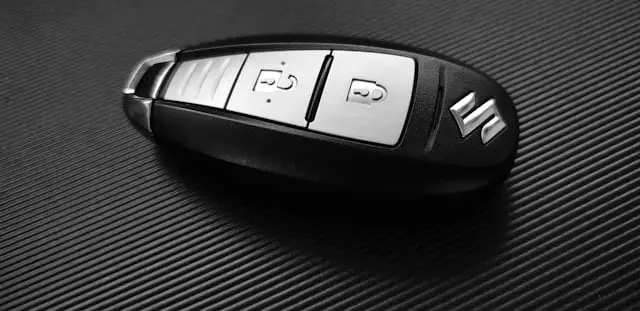
How do I program a car key?
Programming a car key can be a complex task, requiring technical knowledge and sometimes specialized equipment.
1. Transponder Car Key
Programming a transponder key usually involves synchronizing the key's microchip with the vehicle's immobilizer.
Programming steps:
- Get a new key: Make sure the new key is compatible with your vehicle's model and year.
- Insert existing key: Insert a previously programmed key into the ignition and turn it to the ON position (without starting the engine).
- Remove the key: After a few seconds, remove the key.
- Insert the new key: Insert the new key and turn it to the ON position. The car should recognize the new key and program it automatically.
2. Electronic Car Key (Keyless Entry)
Electronic keys require special programming to ensure they communicate correctly with the vehicle's security system.
Programming steps:
- Enter programming mode: The method varies from manufacturer to manufacturer, but generally involves pressing a sequence of buttons on the key and the vehicle.
- Synchronize the key: Once in programming mode, press the buttons on the new key according to the vehicle-specific instructions.
3. Smart Key
Programming a smart key may require the intervention of a professional due to the complexity of the systems involved.
Programming steps:
- Enter programming mode: This may require a specialized diagnostic tool to access the vehicle's electronic system.
- Register the new key: Use the diagnostic tool to register the new key in the vehicle's security system.
4. Card key
Card keys, like those used by Renault, also require specific programming to ensure that they work correctly with the vehicle.
Programming steps:
- Insert existing card key: Place the existing card key in the reader and switch on the ignition.
- Access programming mode: Follow the instructions in the owner's manual to access programming mode.
- Insert new card key: Follow the instructions to synchronize the new card key with the vehicle.

What should you do if you lose your car key?
Losing your car key can be a stressful experience, but there are a number of ways to solve the problem effectively. Here's a detailed guide to what to do if you lose your car key.
1. Check your back-up options
Before you panic, make sure you've explored all your options. Many modern vehicles come with a spare key.
Check whether you have a spare key at home or at the office. This key can be a traditional version or an additional electronic key.
2. Contact your dealer
If you can't find your spare key, the next step is to contact your car dealer.
Prepare the necessary information, such as the vehicle identification number (VIN), proof of ownership (vehicleregistration document), and identification.
The dealer can order a new key and program it for your vehicle. This process can take from a few days to a week, and costs can vary from 100 to 500 euros, depending on the make and model of the vehicle.
3. Use a car locksmith
A professional car locksmith can be a quicker and sometimes cheaper alternative to going through a dealership.
Car locksmiths are equipped to cut and program car keys, including transponder keys and smart keys.
The cost of a car locksmith's service generally ranges from 50 to 300 euros, depending on the complexity of the key and the location of the locksmith.
4. Deactivate the old key
If you've lost your car key in a public place, or if you're worried that it may have been stolen, it's essential to deactivate the old key for security reasons.
Ask your dealer or a locksmith to reprogram your vehicle's ECU to deactivate the old key and prevent anyone else from using it to access your car.
5. Insure against key loss
To avoid future problems, consider taking out key loss insurance. Many insurance companies offer specific cover for lost or stolen car keys, including replacement and reprogramming.

Who can copy a car key?
Copying a car key is a technical process requiring specialized equipment and specific knowledge. Here's an overview of the professionals capable of copying a car key, and what you need to bear in mind.
1. Dealers
Car dealers are often the first choice for copying car keys.
Dealers have the equipment and software to program transponder keys, electronic keys and smart keys. They can also supply guaranteed original keys compatible with your vehicle.
Dealer prices for key copying vary from 100 to 500 euros, depending on the type of key and make of vehicle.
2. Automotive locksmiths
Specialized automotive locksmiths have the expertise and tools to copy a wide variety of car keys.
Automotive locksmiths can offer key-copying services at a cost that is often lower than that of dealerships. They are also more accessible, with mobile services available 24/7 in many regions.
The cost of key copying by an auto locksmith generally varies between 50 and 300 euros, depending on the complexity of the key.
3. Key shops
Some key shops specializing in car keys offer copying and programming services.
These shops have the equipment to cut and program keys, including transponder and electronic keys.
Prices in key shops are often competitive, with rates ranging from 50 to 250 euros depending on the type of key.
4. Car accessory stores
Some car accessory stores also offer car key copying services.
Advantages: Convenience and accessibility, with services available in large chain stores.
Limitations: These stores may not be equipped to copy more sophisticated keys, such as smart keys or transponder keys.
5. Online services
Online services also offer car key duplication, by sending programmed keys by post.
Advantages: Convenient and often less expensive than in-person options.
Limitations: Requires sensitive information to be sent by mail and may take longer to receive key.

Moment in History: the evolution of car keys
The evolution of car keys is a fascinating story that illustrates technological advances and changes in automotive security needs. Here's an overview of the main stages in this evolution.
The early days: simple mechanical keys
The first car keys, which appeared in the early 20th century, were simple mechanical keys. They operated by a cut-and-groove mechanism, similar to house keys. These keys were used to lock and unlock doors and start the engine.
Example: The first Ford Model T (1908) used simple mechanical keys for ignition.
The 1960s: Dual-function keys
In the 1960s, car keys began to evolve with additional functionalities. Dual-function keys could not only start the engine, but also lock and unlock doors and trunks.
Example: Chevrolet Impala keys from the 1960s combined ignition and door access in a single key.
The 1990s: Introduction of transponder keys
The 1990s marked a significant advance with the introduction of transponder keys. These keys incorporate a microchip that communicates with the vehicle's immobilizer system, adding a layer of security to prevent theft.
The introduction of transponder keys reduced vehicle theft by 40% in the years following their adoption.
The 2000s: Electronic keys and keyless entry
With the advent of wireless technology, electronic keys and keyless entry systems began to become commonplace. These keys make it possible to lock/unlock doors and start the engine without removing the key from one's pocket.
Example: The Toyota Prius of the 2000s popularized push-button starting and keyless access.
The 2010s: Smart keys
Smart keys have revolutionized the driving experience with advanced features such as remote start, driver parameter memory, and integration with smartphone applications.
Example: BMW 7 Series models from the 2010s feature smart keys that can be used to park the vehicle remotely.
L'Avenir: Virtual and biometric keys
The future of car keys could see the emergence of virtual and biometric keys. Virtual keys allow users to unlock and start their vehicle via a smartphone app, while biometric technologies could use fingerprints or facial recognition for vehicle access.
The virtual key market is expected to grow by 30% a year until 2025, as automakers increasingly adopt these innovative technologies.
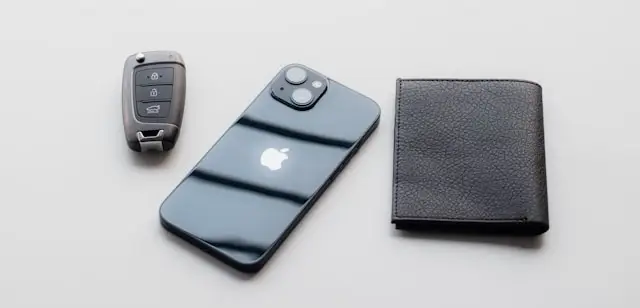
Where can I duplicate my car key?
To duplicate your car key, you can go to :
Car dealers: Reliable for transponder and smart keys, costing between 100 and 500 euros.
Locksmiths : Affordable and fast option, costing between 50 and 300 euros.
Key shops: Fast service for basic keys, cost between 50 and 250 euros.
Car accessory stores: Convenient for simple mechanical and electronic keys.
Online services: Economical but more time-consuming, ideal for routine duplication.

Solutions for repairing a damaged car key
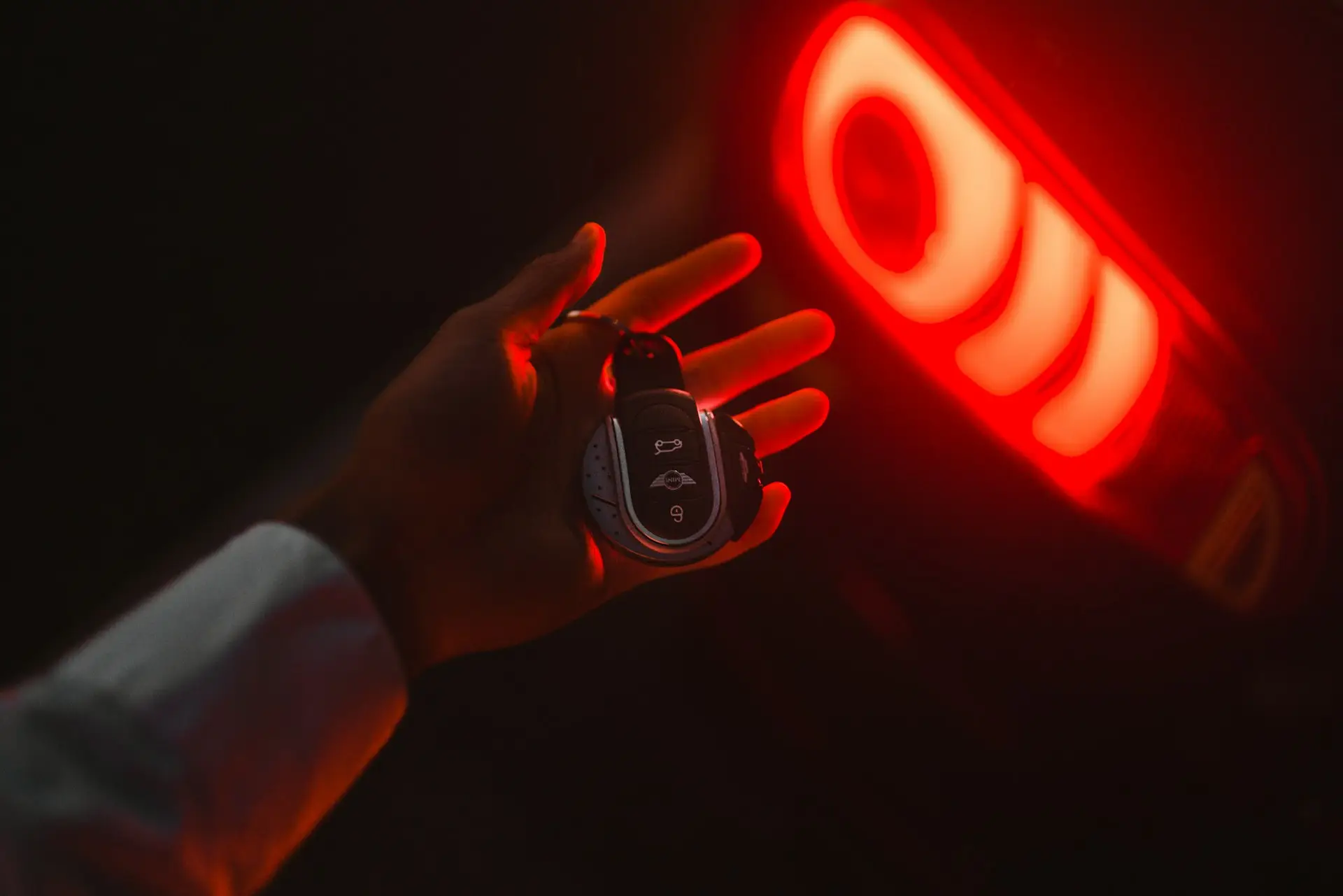
Car key FAQs
What is a car key?
A car key is a device used to unlock and start a vehicle. It can be mechanical, electronic, transponder or smart, each offering different levels of security and convenience.
How do I replace the battery in a car key?
To replace the battery, carefully open the key shell, remove the old battery and insert a new button cell battery (usually CR2032 or CR2025). Close the shell and test the key.
How can I secure my car key against theft?
To secure your car key, use RFID protection cases to block signals, avoid leaving keys near doors and windows, and disable electronic keys when not in use.
How much does it cost to replace a car key?
The cost of replacing a car key varies from 50 to 500 euros, depending on the type of key and the replacement method (dealer, locksmith, etc.).
Can I replace the battery in an electronic car key myself?
Yes, in many cases it is possible to replace the battery in an electronic car key yourself. However, this depends on the specific model of your key. Consult your car owner's manual or search online for instructions on how to replace the battery in your car key.
Is my car key protected against theft?
Yes and no! Modern car keys, especially electronic keys, often feature security measures to prevent theft. This can include embedded microchips that must match the car's security system for the car to start. As no key is tamper-proof, it's advisable to check on the internet whether your model is prone to hacking or not.
Can car keys be copied?
Yes, in many cases, car keys can be copied. However, this depends on the specific type of key and the security measures built into it. Electronic keys are often more difficult to copy due to their advanced technology, and may require special equipment to program new keys. Be sure to call in qualified professionals to copy or program car keys.
Can I get a replacement car key without proof of ownership?
You'll need to provide proof of vehicle ownership, such as a vehicle registration document, to obtain a replacement car key from a car dealer or auto locksmith. This helps prevent car theft and ensures that only legitimate owners can obtain replacement keys.






